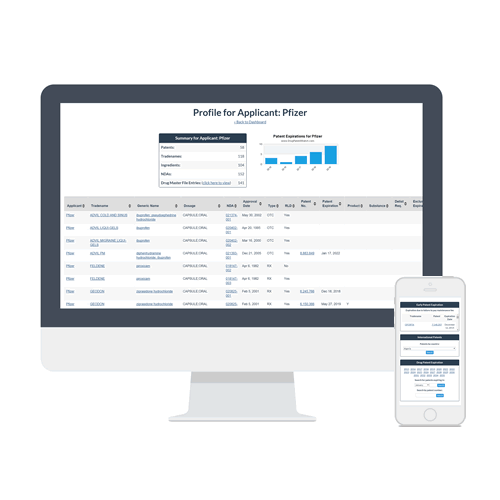
Blockchain technology is revolutionizing various industries, and the pharmaceutical sector is no exception. With its decentralized, transparent, and tamper-proof nature, blockchain offers innovative solutions to many of the industry’s persistent challenges. Let’s dive into how blockchain is transforming the pharmaceutical industry, addressing issues from counterfeit drugs to supply chain inefficiencies.
Table of Contents
What is Blockchain?
Blockchain is a distributed ledger technology that allows data to be stored across a network of computers in a way that ensures transparency and security. Each block in the chain contains a list of transactions, and once a block is added, it cannot be altered without changing all subsequent blocks, making the system highly secure.
Why Blockchain in Pharma?
Addressing Transparency and Traceability
One of the most significant challenges in the pharmaceutical industry is ensuring transparency and traceability in the supply chain. Blockchain’s decentralized nature ensures that every participant has real-time access to an immutable record of each transaction. This capability is crucial for tracking the entire journey of a drug, from raw materials to delivery to patients[2].
Preventing Counterfeit Drugs
Counterfeit drugs are a significant problem in the pharmaceutical industry. Blockchain’s tamper-proof records make it exceptionally difficult for counterfeiters to infiltrate the supply chain. Consumers can verify the authenticity of their medications by tracing their origins on the blockchain, empowering them to make informed decisions[2].
Enhancing Data Integrity
In clinical trials and research, maintaining data integrity is paramount. Blockchain ensures that research findings, patient data, and clinical trial results are recorded accurately and cannot be altered retrospectively. This builds trust among researchers, regulators, and the public[2].
Streamlining Regulatory Compliance
Blockchain automates data collection and verification, making compliance with complex regulatory standards more efficient. With all necessary documentation stored securely on the blockchain, audits become quicker and more accurate[2].
Real-World Examples of Blockchain in Pharma
MedRec
MedRec employs blockchain to create an auditable trail of patient interactions with healthcare providers. This enhances data accuracy, privacy, and accessibility, promoting informed medical decisions[2].
VeChain
VeChain, a blockchain-based supply chain solution, partnered with a major pharmaceutical company to enhance traceability in its supply chain. The partnership aims to prevent counterfeit drugs from entering the market by allowing consumers to verify a product’s authenticity[2].
Chronicled’s Serialization Solutions
Chronicled collaborates with pharmaceutical companies to combat counterfeit drugs by assigning unique digital identities to individual products and recording their journey on the blockchain. This technology-driven trust ensures patients receive genuine and safe products[2].
IBM’s Drug Supply Chain Application
IBM’s blockchain platform facilitates end-to-end visibility and transparency across the drug supply chain. This real-time tracking ensures adherence to quality standards, mitigates risks associated with substandard products, and expedites recalls when necessary[2].
Modum’s Temperature Monitoring
Modum employs blockchain and IoT technology to ensure the integrity of temperature-sensitive medications during transit. By tracking temperature data at each stage of transportation and storing it on the blockchain, Modum safeguards the efficacy of drugs and guarantees they remain within specified storage conditions[2].
How Blockchain is Implemented in Pharma
Speeding Up Medicine Tracking and Verification
Blockchain can simplify the complex web of manufacturers, wholesalers, and retailers in the pharmaceutical supply chain. It facilitates peer-to-peer networks that allow different stakeholders to easily communicate and collaborate without compromising sensitive data[3].
Boosting Research and Development
Blockchain’s immutability and transparency make it an excellent tool for managing research and development data. It ensures that data is accurately recorded and easily accessible, fostering collaboration and innovation in drug development[3].
Improving Clinical Trials
Blockchain can streamline clinical trials by ensuring the integrity of trial data. It provides a secure, transparent, and tamper-proof way to record and share data, making it easier to track progress and verify results[5].
Enhancing Patient Data Management
Blockchain can revolutionize patient data management by providing a secure and decentralized environment for storing, sharing, and managing sensitive health data. This includes patients’ health records, social security numbers, and bank account details[5].
Empowering Telemedicine and Remote Monitoring
Blockchain can support telemedicine and remote monitoring by providing a secure platform for storing and sharing patient data. This ensures that healthcare providers have access to accurate and up-to-date information, enabling them to provide better care[5].
Challenges and Future Directions
Scalability
One of the main challenges of implementing blockchain in the pharmaceutical industry is scalability. Blockchain networks can become slow and inefficient as the number of transactions increases. However, ongoing research and development are focused on finding solutions to this problem[1].
Regulatory Hurdles
The pharmaceutical industry is heavily regulated, and implementing blockchain solutions requires navigating complex regulatory landscapes. Collaboration between industry stakeholders and regulators is essential to ensure compliance and foster innovation[1].
Data Privacy
While blockchain offers enhanced security and transparency, it also raises concerns about data privacy. Ensuring that sensitive patient data is protected while still allowing for transparency and traceability is a delicate balance that needs to be carefully managed[1].
Integration with Existing Systems
Integrating blockchain with existing systems can be challenging. It requires significant investment in technology and training, as well as collaboration between different stakeholders to ensure seamless integration[1].
Conclusion
Blockchain technology holds immense potential for transforming the pharmaceutical industry. From enhancing transparency and traceability to preventing counterfeit drugs and improving data integrity, blockchain offers innovative solutions to many of the industry’s most pressing challenges. While there are still hurdles to overcome, the future of blockchain in pharma looks promising.
FAQs
1. How does blockchain prevent counterfeit drugs?
Blockchain’s tamper-proof records and transparent nature make it exceptionally difficult for counterfeiters to infiltrate the supply chain. Consumers can verify the authenticity of their medications by tracing their origins on the blockchain.
2. What are the benefits of blockchain in clinical trials?
Blockchain ensures the integrity of trial data by providing a secure, transparent, and tamper-proof way to record and share data. This makes it easier to track progress and verify results.
3. How does blockchain enhance patient data management?
Blockchain provides a secure and decentralized environment for storing, sharing, and managing sensitive health data. This includes patients’ health records, social security numbers, and bank account details.
4. What are the challenges of implementing blockchain in the pharmaceutical industry?
Challenges include scalability, regulatory hurdles, data privacy concerns, and integration with existing systems.
5. How does blockchain improve supply chain transparency?
Blockchain’s decentralized nature ensures that every participant has real-time access to an immutable record of each transaction. This capability is crucial for tracking the entire journey of a drug, from raw materials to delivery to patients.
Blockchain technology is accelerating digital transformation across multiple industries, including the pharmaceutical industry. The pharmaceutical industry suffers from a lack of transparency, difficulty tracking products, lack of trust, and the shipment of expired products. Blockchain technology has been applied to solve several of these problems. [1]
Sources Cited
- https://www.ncbi.nlm.nih.gov/pmc/articles/PMC9137953/
- https://www.qualifyze.com/resources/blog/the-role-of-blockchain-technology-in-pharma/
- https://limechain.tech/blockchain-use-cases/pharma/
- https://builtin.com/blockchain/blockchain-healthcare-applications-companies
- https://www.linkedin.com/pulse/top-5-real-world-use-cases-blockchain-healthcare-organizations
Citations:
[1] https://www.ncbi.nlm.nih.gov/pmc/articles/PMC9137953/
[2] https://www.qualifyze.com/resources/blog/the-role-of-blockchain-technology-in-pharma/
[3] https://limechain.tech/blockchain-use-cases/pharma/
[4] https://builtin.com/blockchain/blockchain-healthcare-applications-companies
[5] https://www.linkedin.com/pulse/top-5-real-world-use-cases-blockchain-healthcare-organizations


